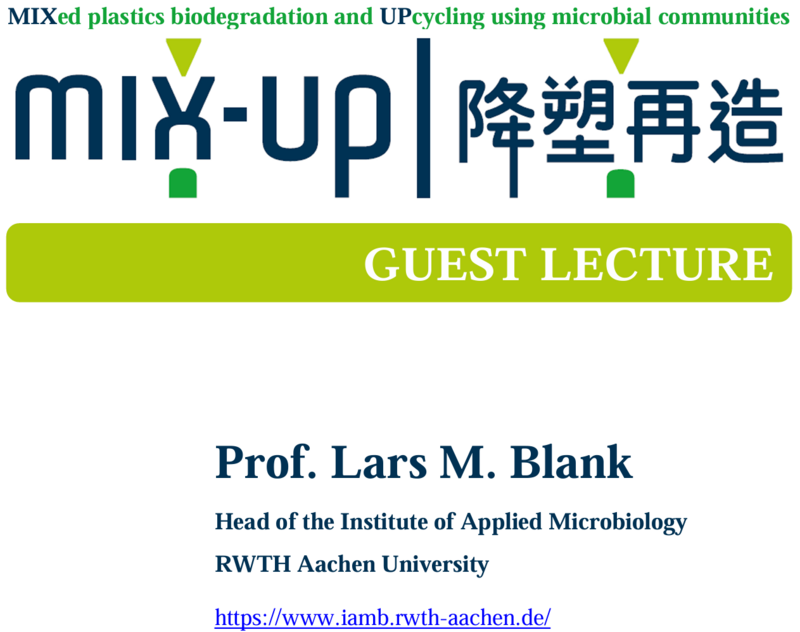Over 400 million tons of plastics were produced worldwide in 2022, with significant growth expected in the near future, resulting in the global challenges of an ever-growing CO2 footprint, of exceeding planetary boundaries, and of by far too low recycling quota. The use of plastic with chemical bonds that can be broken under defined conditions promises to address these challenges, with polyesters being the prime example. With ever increasing recycling tonnages, PET is leading the market, however, relying on strong separation by, e-g-, refund systems. The recent identification of enzymes that break polyester bonds and thereby degrade plastics previously considered to be non biodegradable opens up opportunities to steer the plastic recycling industry into the realm of biotechnology. We here elucidate in detail the upcycling of plastic waste by improving plastic hydrolysis, followed by feeding the resulting plastic monomers as carbon source to microbial plastic producers. In addition, novel value chains include products derived from de novo lipid synthesis like secreted OH-fatty acid derivatives. The envisaged contributions to improve sustainability of the plastic industry will be discussed.
Announcement: Guest Lecture in June!
We are happy to welcome Prof. Lars M. Blank, Head of the Institute of Applied Microbiology at RWTH Aachen University, for a guest lecture on “Is sustainable plastic use in reach? Contributions of the EU project MIX-UP to a sustainable future.” on Friday, 7th of June 2024, at 11 a.m. (CEST).


